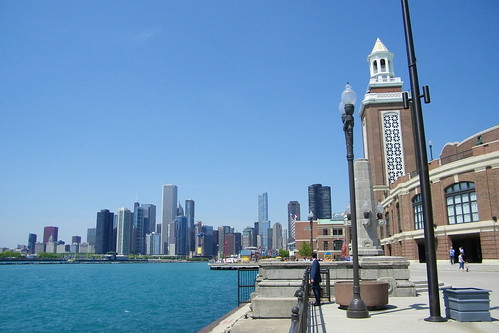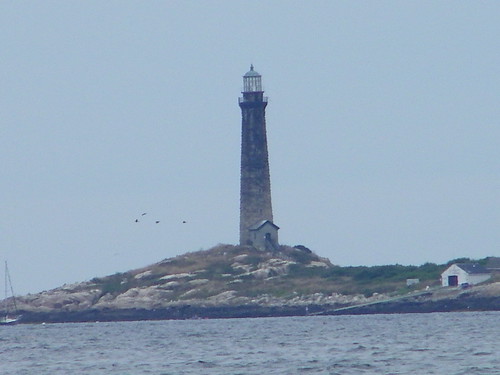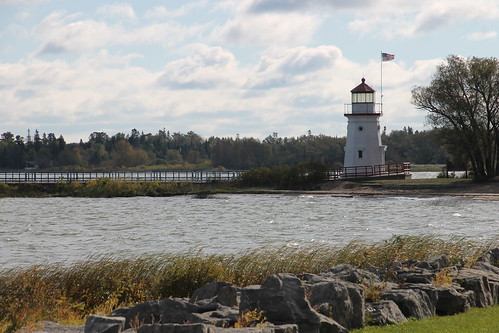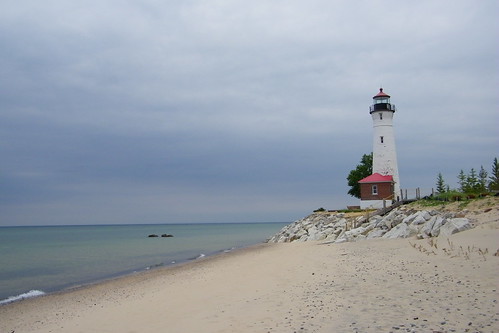 |
| Chicago from Navy Pier (May 2012) |
Destination Freedom is a series that ran over Chicago's WMAQ from June 27, 1948 through August 13, 1950. According to John Dunning's Encyclopedia of Old-Time Radio, "its original purpose was to dramatize and reveal little-known lives from black Americana. The show was the brain-child of Richard Durham, a black writer who also wrote scripts for the Works Progress Administration. This anthology series showcased biographies of notable members of the African-American community all over the country. The program had great production values and broadcast weekly on Sunday at 5pm. Early episodes were also produced with the Chicago Defender, the African-American newspaper of Chicago.
On September 26, 1948, Destination Freedom aired "Shakespeare Of Harlem", the story of poet Langston Hughes (1902-1967). The story starts out with young Langston heading off to Mexico to live with his father, who is a successful rancher. But rather than following his father into business, he wanted to write and was well known as the boy with a notebook. So despite the discrimination waiting for him back in the states, he decided to leave Mexico and head back to the United States. He worked a variety of jobs, but it was a chance meeting while a busboy in Washington D.C. that he was discovered. He slipped a poem to the attention of poet Vachel Lindsay and from that, his life as an obscure writer ended. Excellent radio historical account in this wonderful recording. Including in the episode are excerpts from Langston Hughes work including: "Freedom Train", "Suicide Note", "Wake", and "Democracy", all used with special permission by the author. Fred Pinkard played Hughes and the script was written by Richard Durham and produced by Homer Hecht.
I hope you enjoy this new series this month.
Shakespeare of Harlem (Destination Freedom - September 26, 1948)
Here are some links to programs relating to Old Time Radio and Destination Freedom:
- Destination Freedom radio program episodes via the Internet Archive
- Destination Freedom radio programs from Old Time Radio Researchers Group Library
- Destination Freedom on the Digital Deli
- Destination Freedom on Jerry Haendiges Vintage Radio Logs
- Destination Freedom on RadioGOLDINdex
- Langston Hughes Biography on poets.org
- Langston Hughes Biography on Wikipedia
- American RadioWorks - Radio Fights Jim Crow by Stephen Smith (2001)
- Greg Bell's Old time radio channel (#148)
- All Corey's Old Time Radio blog entries
- Corey's Baseball Entries
- Corey's Christmas Entries
- Corey's Food Entries
- Corey's Lighthouse Entries
- Visit your public library to learn more!
African Americans on Old Time Radio:





